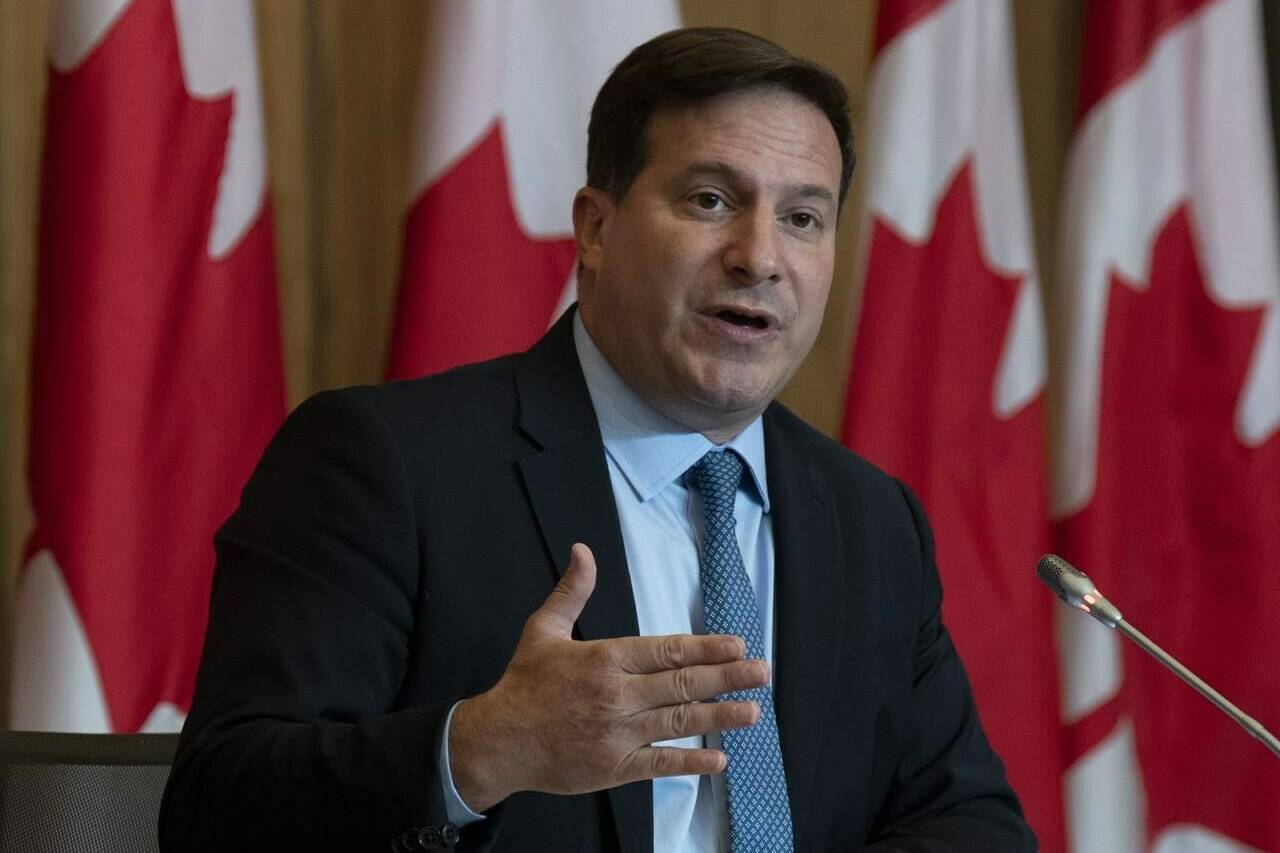Federal Public Safety Minister Marco Mendicino says he had a heavy and difficult visit with families of those killed in a mass stabbing in Saskatchewan before he signed an agreement to explore new ways to improve safety on some First Nations in the province.
“It is a cornerstone of reconciliation that policing for Indigenous people by Indigenous people is at the very heart of the work that we are doing today,” Mendicino said Monday at the Prince Albert Grand Council annual assembly.
Eleven people were killed and 18 injured during the stabbing rampage last month on the James Smith Cree Nation and in the nearby village of Weldon, northeast of Saskatoon.
A suspect in the attacks later died in police custody.
“How are we supposed to cope with all of this?” asked James Smith Cree Nation Chief Wally Burns. “How are we supposed to move together?”
The chief echoed his calls for Ottawa to help his community establish its own police force. He said finding solutions would be a step toward healing.
The agreement between the Grand Council, Saskatchewan government and Ottawa creates a collaborative working relationship for community-oriented ways to deliver police services.
Mendicino said the intent is to put in place the building blocks to create self-administered police programs on First Nations.
Large changes happen in small steps, said Christine Tell, Saskatchewan’s public safety minister. She said the recent tragedy highlights how public safety in Indigenous communities will require work from all levels of government.
First Nations leaders said the plans need to be tailored to each community.
Under the new agreement, a team will begin talking with residents of the Grand Council’s 12 First Nations and 28 communities in early winter. Findings will be used to design and determine costs for a feasibility study under the federal government’s First Nations and Inuit Policing Program.
That program, created in 1991, provides funding for Indigenous policing, sharing costs between provinces and the federal government. It has been criticized for underfunding those services and not being accessible to nearly one-third of First Nations and Inuit communities.
Mendicino is pushing for legislation that would declare Indigenous policing an essential service. However, he stepped back his commitment to have it tabled in the fall.
Mendicino said he wants to introduce the legislation as early as possible, but it must also meet the pace of communities and undergo consultation.
“We need to be sure that when communities call for help, they should get it — no matter where you live.”
RELATED: ‘Here to forgive’: Victims’ families, Indigenous leaders gather after mass stabbing

